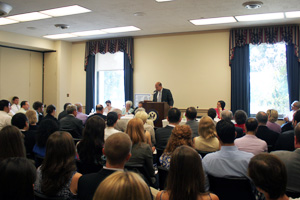
July 19, 2013 briefing in the Rayburn House Office Building in Washington, DC on “The Way Forward in Egypt.”
On July 19, 2013, the National Council on U.S.-Arab Relations and the U.S.-GCC Corporate Cooperation Committee hosted a briefing on
“The Way Forward in Egypt” featuring Professor Karim Haggag, Visiting Professor, Near East South Asia Center for Strategic Studies and Former Director, Egyptian Press and Information Office in Washington, DC; Ms. Randa Fahmy Hudome, Board Member, National Council on U.S.-Arab Relations and General Counsel, American Egyptian Strategic Alliance; Dr. Marina Ottaway, Senior Scholar, Middle East Program, Woodrow Wilson International Center for Scholars; and Dr. Diane Singerman, Associate Professor, School of Public Affairs, American University. Dr. John Duke Anthony, Founding President & CEO, National Council on U.S.-Arab Relations, served as moderator.
A podcast of the program is available through the link below as well as in iTunes with recordings of other National Council programs: http://bit.ly/itunes-ncusar.
“The Way Forward in Egypt” podcast (.mp3)


You must be logged in to post a comment.